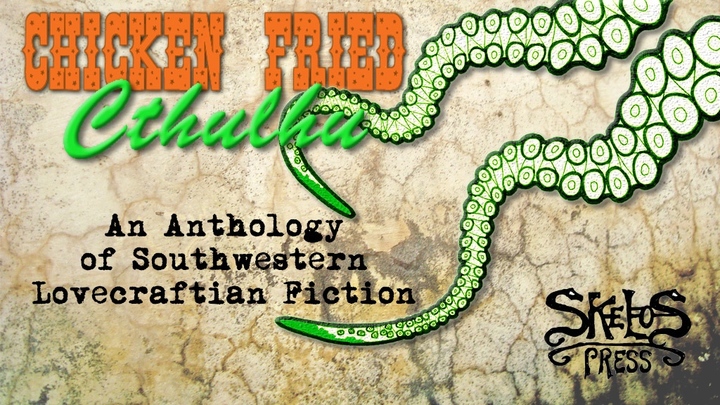Dark Dreams in Red Dirt
It started with Arkham House, of course. The original Tales of the Cthulhu Mythos anthology strove to collect, and maybe even codify, the various stories written by Lovecraft’s contemporaries during their heyday; Robert E. Howard, Clark Ashton Smith, Frank Belknap Long, Robert Bloch, August Derleth, and others. That was back in 1969, right in the middle of the epic fantasy and sword and sorcery boom. Other anthologies of a similar nature followed, attempting to trace antecedents and well as descendants.
When the horror boom swept in during the 1980s, authors like Ramsey Campbell and Robert Bloch were releasing collections of nothing but their mythos stories. As the popularity and notoriety of Lovecraft’s works increased, smaller publishing efforts like Chaosium’s early collections themed around a particular Great Old One — The Azathoth Cycle, say — sold briskly.
Then things got a little nutty. Sherlock Holmes vs Cthulhu. Hardboiled Cthulhu, Frontier Cthulhu, High Seas Cthulhu, Cthulhu in Space, Cthulhu in the Future, and even erotic Cthulhu Mythos fiction (you’re on your own, there, pardner). There’s a List Challenge you can take, if you are so inclined, to see how many of these books you own or have read. I’d be very surprised if you have read them all. I’m into this stuff, and there’s a bunch I haven’t even heard of.
So, with all that being a given, why on Earth are we trying to publish Chicken Fried Cthulhu? What’s so special about the Southwest, anyway? It’s a great question. Let me give you the short answer: Joe R. Lansdale.
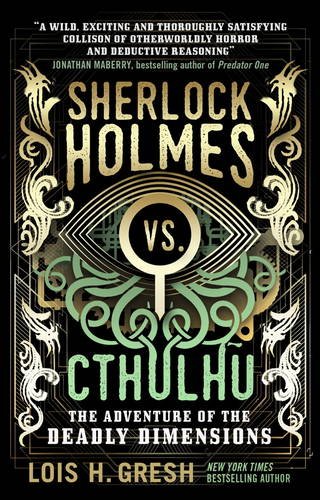 |
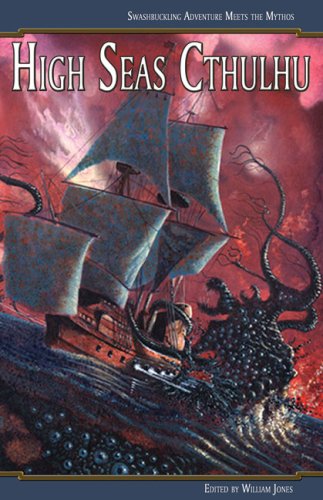 |
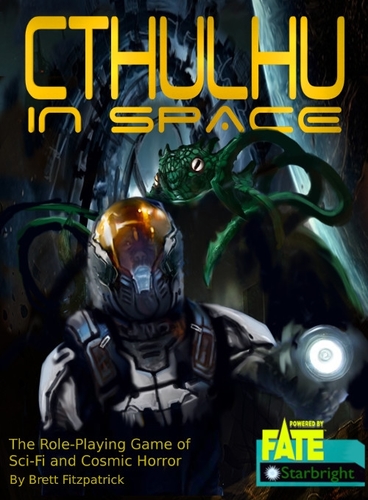 |
There’s a longer answer as well, but I’ll try to be succinct. There is a kind of tradition among Southwestern artists to combine influences, genres, tropes, and ideas. Whether we are talking about Jack Teagarden, who married Jazz and the blues with his singular trombone playing; Bob Wills, who invented Texas swing by combining cowboy western and Dixieland Jazz music; or Robert E. Howard, who took historical settings and dropped Weird monsters and characters into the plots to create Sword and Sorcery. You can even make a case for the novel The Wind, by Dorothy Scarborough, being the vanguard of the Weird Western tradition, by combining the desolate and isolated West Texas frontier with the supernatural presence of the incessant wind, which drives the frail heroine to madness.
This tendency to conflate and intertwine seemingly unrelated elements to create new forms and ideas is not unique to Texas and the southwest, of course, but it does show up in an awful lot of southwestern artists’ creative processes, including my own. Around these parts, we call it “Texas Weird,” and it’s merely a descriptive shorthand to indicate a writer or a story that is, if you’ll pardon the colloquialism, “Out there where the buses don’t run.”
Many Texas writers of weird and speculative fiction are described in this manner. The late Neal Barrett, Jr., Chad Oliver, Howard Waldrop, Scott Cupp, Bradley Denton, Nancy Collins, Stephen Graham Jones, Christopher Brown, William Browning Spencer, and of course, Joe R. Lansdale. Many of their personal histories are eerily similar; growing up in small or isolated towns, precocious readers and/or fiercely intelligent, alone with their thoughts, and with everything they read going into their creative files without any filters. No sense of what a “good” book was, as opposed to “trashy” magazines, like pulps. Whether it was Edgar Rice Burroughs, comic books, the Bible, rock and roll music, Shakespeare, or the Weird Tales authors like Howard and Lovecraft, it all was fair game and nothing was off the table when they started writing their own stories.
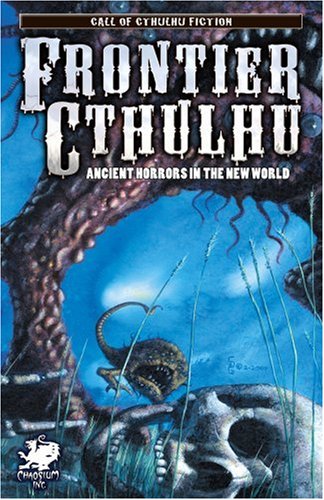 |
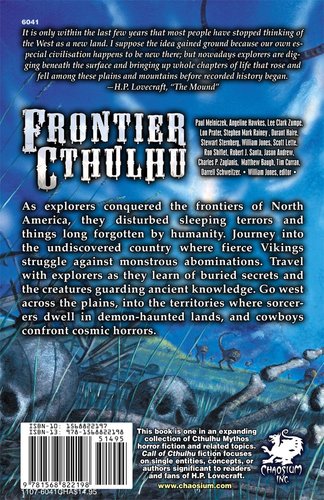 |
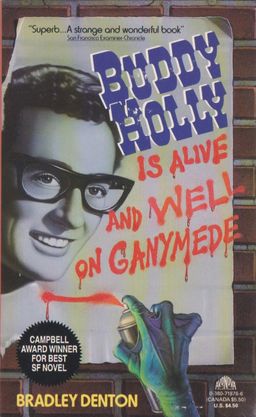 That’s how we got Buddy Holly is Alive and Well on Ganymede from Brad Denton. That’s where Bubba Ho-Tep, the finest Elvis versus the Mummy story ever written, by Joe Lansdale, came from. Robert E. Howard’s Solomon Kane, the Puritan who wanders the Earth, fighting vampires and pirates, is the progenitor of sword and sorcery. Bruce Sterling rallied a group of disenfranchised Austin writers into the Cyberpunk movement. Or what about “Night of the Cooters,” by Howard Waldrop, which presupposes H.G. Wells’ Martian cylinders landing in East Texas. And we can’t forget “13 Days of Glory” by Scott Cupp, which turns the Alamo story on its ear by making the whole conflict about the establishment of gay rights in the state of Texas.
That’s how we got Buddy Holly is Alive and Well on Ganymede from Brad Denton. That’s where Bubba Ho-Tep, the finest Elvis versus the Mummy story ever written, by Joe Lansdale, came from. Robert E. Howard’s Solomon Kane, the Puritan who wanders the Earth, fighting vampires and pirates, is the progenitor of sword and sorcery. Bruce Sterling rallied a group of disenfranchised Austin writers into the Cyberpunk movement. Or what about “Night of the Cooters,” by Howard Waldrop, which presupposes H.G. Wells’ Martian cylinders landing in East Texas. And we can’t forget “13 Days of Glory” by Scott Cupp, which turns the Alamo story on its ear by making the whole conflict about the establishment of gay rights in the state of Texas.
That liminal space between two disparate ideas is where the most inspired Texas Weird stories are born. And the Texas Weird Literary authors, past and present, have been doing it for over 80 years, quietly, to themselves, or for small groups of admirers. The Cthulhu Mythos was never off limits; in fact, it was usually snuck in, under cover of darkness, and slaughtered, just like every other sacred cow in the Texas author’s stable.
Cheerfully irreverent. Not-quite-right. Downright strange. These phrases are the bread and butter of Southwestern speculative fiction writers. What they bring to this project cannot be overstated. This clutch of award-winning and nominated authors will bend and shape the Cthulhu mythos like balloon animals from a demented clown.
But don’t worry; the Great Old Ones are pretty sturdy their ownselves. They can take it. If they can survive Sherlock Holmes pastiches and piracy on the high seas, a trip to Lost Knob, Texas, is no skin off of their noses. And it’s not their first time to visit the Southwest, either. Many of Howard’s horror stories are set in Texas. “The Curse of Yig” is coiled in Oklahoma. The Cthulhu cult reaches all the way down to New Orleans in “The Call of Cthulhu.” They have been here before. And now they will rise again, all sweaty and shaking, in the red dirt, under the blistering sun, sanctified and chicken fried.
Mark Finn is an author, an editor, and a pop culture critic. He is a nationally-recognized authority on Robert E. Howard and has written extensively about the Texas author. He is a managing editor for Skelos Press, and he podcasts for The Gentlemen Nerds. When he is not waxing eloquent about popular culture, he writes comics and fiction, dabbles in magic, and produces and performs community theater. He lives in North Texas over an old movie theater with his long-suffering wife, too many books, and an affable pit bull named Sonya.
The Kickstarter for Chicken Fried Cthulhu is live at: www.kickstarter.com/projects/1376036639/chicken-fried-cthulhu-a-skelos-press-anthology
